Think of what’s well known about San Diego County, and the weather, our beaches and fine dining might come to mind. But did you know there are more than 5,000 farms in the county? In fact, San Diego County has more farms than any other county in the United States.
Most farms here are small; between one and nine acres. At 130 acres, Rodriguez Family Farms in Valley Center is among the larger operations in the county.
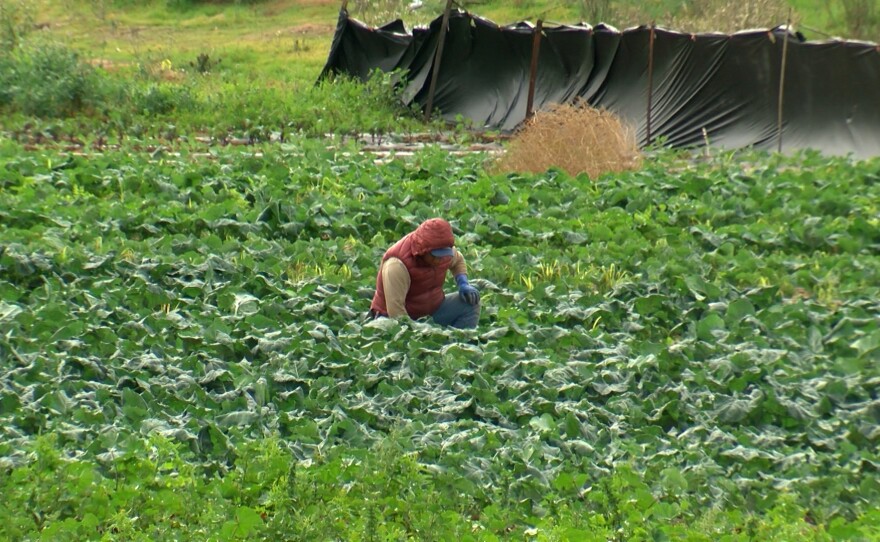
“We probably grow about 100 different items on our farm," said Mike Clark, part of the fourth generation to farm on these gentle hills.
“(I) kind of grew up on the farm. I’m 34, but all this here is grown, and the grower is JR, Joe Rodriguez, which is my uncle," Clark said.
This is the slow time of year at Rodriguez Family Farms. There are only about 50 crops in the ground right now.
But, this is still a busy place. The day we were there, we saw a tractor tilling the earth, plowing under an old crop of lettuce, while just a few feet away, workers were planting a new crop of lettuce.
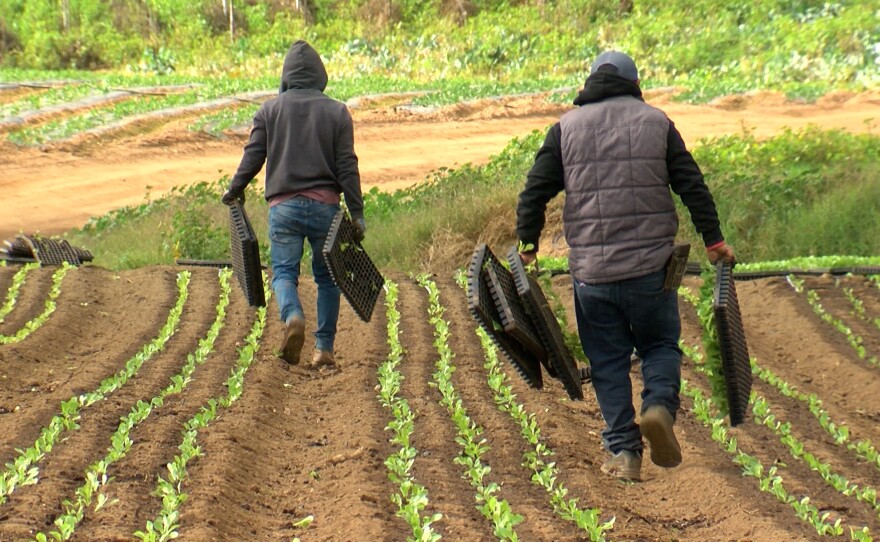
Clark will be the first to tell you that farming is not easy. So, when he heard about a new county effort to help local farmers, he was thrilled.
“Our costs are extremely high, so this is definitely going to help offset those costs by getting that money directly to the farm," Clark said.
So, how does it work? For the answer, we turned to County Supervisor Tara Lawson-Remer. She was the driving force behind what’s called the Sustainable, Equitable and Local Food Sourcing Program. It launched in early December.
“We’re the county. We’re here to be a partner. It’s millions and millions and millions of dollars of taxpayer money — of San Diego taxpayer money — we spend every single year, and we should be spending to support our local economy," Lawson-Remer said.
To be clear, this is not an increase in spending. Lawson-Remer said the money would be spent anyway. The county buys a lot of food that feeds lots of people; everyone from children in school to people in jail.
What’s different now is a set of values that the people who procure food for the county will have to follow.
Lawson-Remer said the core values are around "equity and local sourcing and environmental sustainability and workers," and added that now, when procurement bids are put out, the most competitive bids will be from those "that can show that they treat their workers well; they can show that they have regenerative and organic farming practices that are local, and can show that they give back to the local economy."
Clark said, “It’s very hard to compete with Mexico product and product from up north, so for us being able to work directly with these buyers is tremendous. They’re able to respect the fact that our cost is higher, being here in San Diego and give us the money directly, that’s huge."
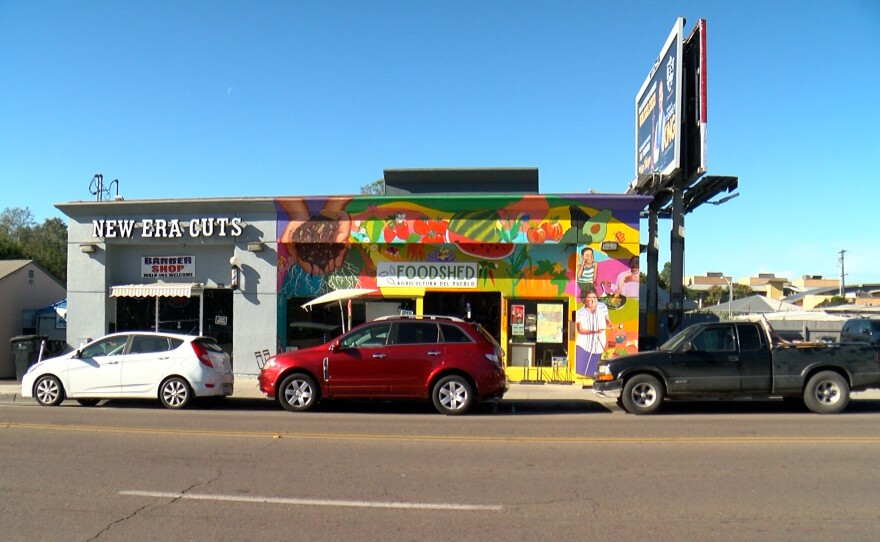
The Foodshed Cooperative on Fairmount Avenue in San Diego is playing a big part in getting this new county program to work.
“99% of our farms are just right here in the county, ” said Kristin Kvernland, the cooperative's supply chain specialist.

On the day we were there, her team was packing up food deliveries, mainly for low-income people of color.
“The more we invest, the better it is for the environment, the more nutritionally dense the food is and the more you can support small local businesses and keep your money circulating in the community," Kvernland said.
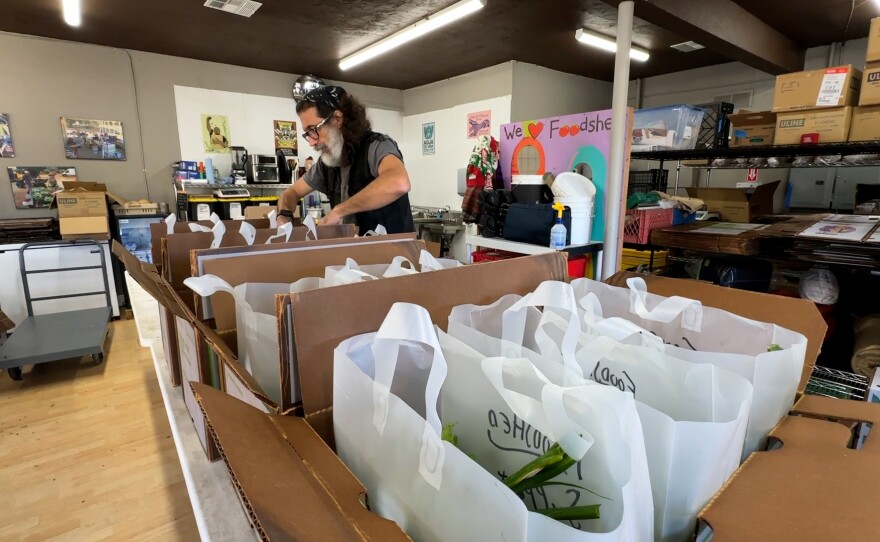
That way of thinking has been part of the Foodshed operation for the last few years. Kvernland said with the county program now in place, it will help Foodshed to turn the traditional system of procuring food on its head.
Right now, farmers grow their crops and buyers for schools, jails and other programs that feed people decide what they need and then order the food.
Kvernland said with Foodshed, it’s just the opposite. She first talks to the buyers to find out what they need — so the farmers can grow what’s needed.
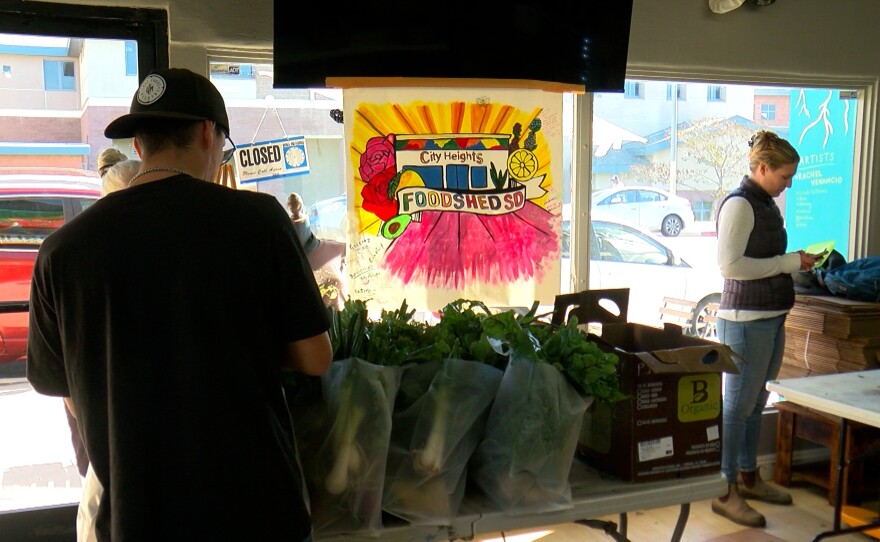
“And then I create a collective crop plan and then I go out and I let the farmers know, 'We need... 15,000 bunches of carrots this year and 20,000 heads of lettuce. Who can grow it?' And then we divide it up amongst all of our farms," Kvernland said.
Kvernland said doing business this way also helps diversify risk, so if one farm has a failure, others can pick up the slack. And that, she said, builds resilience in the local food system.
In other words, what they do at Foodshed dovetails with the county’s new program.
Mike Clark of Rodriguez Family Farms in Valley Center is thrilled with the new county program, and he said Foodshed is an important part of the process, because farmers are busy with farming.
“Down there at Foodshed, they’re doing amazing work bringing that connection to us and to the schools and the correction facilities," Clark said.
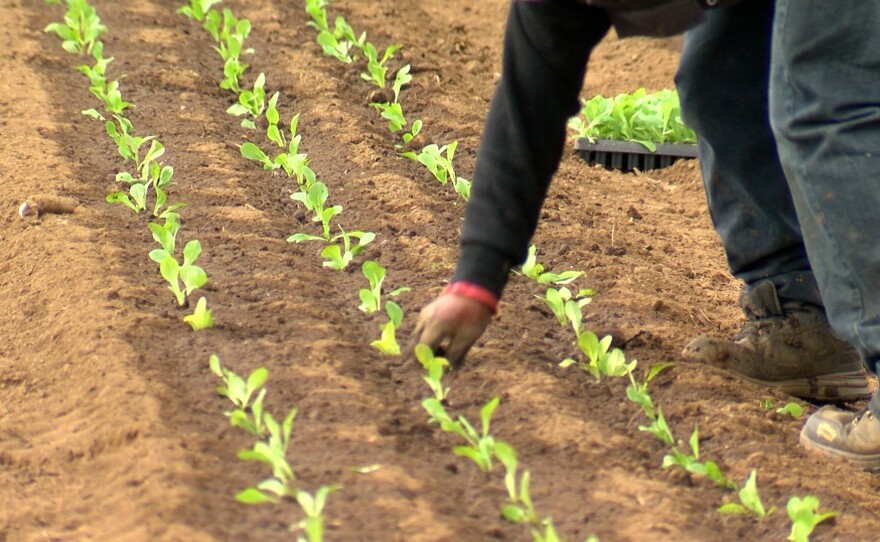
Along with the various types of squash, kale and strawberries, there’s something else to be found on Rodriguez family farms. This product is of the rhythmic variety.
It’s Clark’s cousin, Mongoyo Rodriguez, communicating a message about the importance of organic farming — in his own unique way.
“Yo, last of a dying breed, protectors of a righteous creed, we need more non-GMO seeds, more chances to advance without politicians taking a stance against us…” Mongoyo Rodriguez rapped.
In other words, just what the new county program is designed to do; refocus the support of the county — of the taxpayer’s money — to San Diego county’s farmers.





